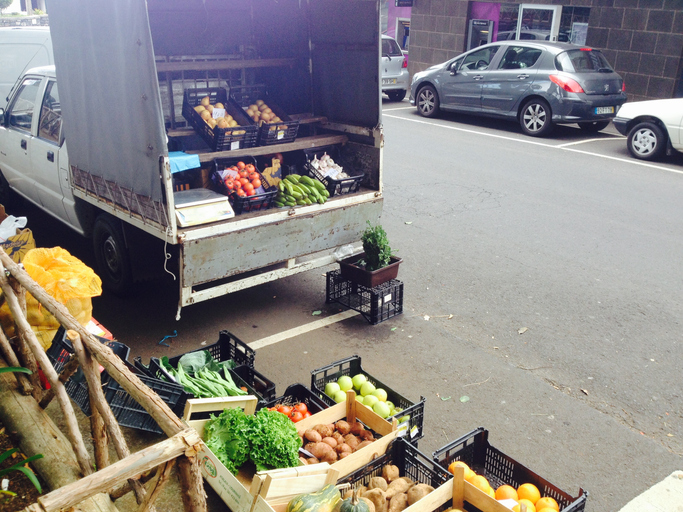Komal Ahmad, the founder of Copia, thinks hunger is the world’s dumbest problem — and not without reason.
Every single day, Americans waste the equivalent of one pound of food per person, or 365 million pounds a day. That’s enough waste to fill a 90,000 seat football stadium to the brim. By the end of 2017, according to estimates from the United States Department of Agriculture, our nation had wasted 81.4 billion pounds of food,
Amid all this waste, 42 million people in America, including 13 million children, experience food insecurity, meaning they do not know where they’re going to get their next meal, if they even get to meet at all.
And in the wake of COVID-19 and its disruption of our economy, and our supply and delivery chains — really, our entire way of life — that number is expected to increase: One early estimate from the Center on Budget and Policy Priorities says the percentage of adults “who sometimes or often didn’t have enough food to eat in the last seven days” rose from 3.4 percent in 2019 to 11 percent in 2020.
But as it stands, the numbers behind our waste and our hunger net out to what Ahmad calls a baffling disparity: Americans end up wasting about three times as much food as there are hungry mouths to feed.
“Hunger isn’t a scarcity problem — it’s a logistics problem,” Copia says on its site. “There isn’t a lack of food, but an ineffective redistribution of excess food.”
Copia’s technology allows donors from businesses that serve food — think restaurants, hotels and Silicon Valley’s corporate cafeteria’s — to use its app to connect them with nonprofits that work with people experiencing hunger. Those nonprofits set up profiles on Copia, answering questions like what food they might need, when they need them, how they need to be packaged and what facilities they have to store them. From there, Copia’s algorithmically pairs nonprofits with donors, then donors use the app to quickly schedule a pickup of their excess food, and Copia dispatches its drivers for pickup and delivery.
On top of this service, Copia’s technology allows its donors businesses track trends in their surplus food, and reporting patterns in their excess back to them in order to help them make better buying decisions.
“With Copia, donors with excess food benefit in three real ways: real time sustainability and environmental metrics, itemized surplus analytics to help reduce waste at the source and fully automated tax receipts and reporting,” the site says. “We help the donors we partner with track trends in their surplus food, and we report back to them in order to make better buying decisions.”
In other words, if Copia’s drivers are constantly picking up celery from their donors’ restaurants, the restaurant owners will get a notification to buy less celery, creating less food waste and saving the restaurant money.
One big client Copia has helped? The Cheesecake Factory. In partnership with Copia, the national restaurant chain created the Nourish Program, an exclusive deal that moved the entirety of the chain’s food waste management and recovery system to Copia’s system. As a result, in 2020, Cheesecake Factory restaurants across the country were able to donate 400,000 pounds of food to nonprofits that feed people experiencing food insecurity.
Ahmad never expected to be the founder of a food startup in the circular economy. But while she was a student at Berkeley with a clear track towards medical school, she had an encounter that changed her life forever.
“One day, I was walking down Telegraph Avenue and I encountered a homeless man who was begging for food,” she said to ELLE Magazine. “Something about him compelled me to stop and ask him to lunch.”
Over conversation at that lunch, she learned the man was a veteran.
“He had just returned from a tour in Iraq, was waiting for his benefits to kick in. He hadn’t eaten in three days. So this was a veteran, someone who made a selfless sacrifice for our country, only to come home to face yet another battle. To add insult to injury, right across the street, Berkeley’s dining hall was throwing away thousands of pounds of perfectly edible food.”
But while researching and coordinating ways to rescue that food from Berkeley’s dining hall, she learned that food donation to nonprofits was something of a logistical nightmare: the kind of nightmare that keeps people experiencing hunger from the food we waste every day.
“I know it sounds unrealistic to say that one lunch transformed my life — but it’s true. It was in that moment that the idea of Copia was born,” Ahmad said.
At present, Copia has recovered 3.4 million pounds of food, and they’ve helped deliver 3.2 million meals.
“[As a nation], we waste over 365 million pounds of perfectly edible food every day,” Ahmad said in Naturalizer. “We simply can’t tolerate a world where we waste three times more food than there are mouths to feed. We have the technology. We have the resources. We have the wherewithal to solve this problem.”
To learn more about why we need more investment in creating a circular economy, read our introduction to this series.

 "
"